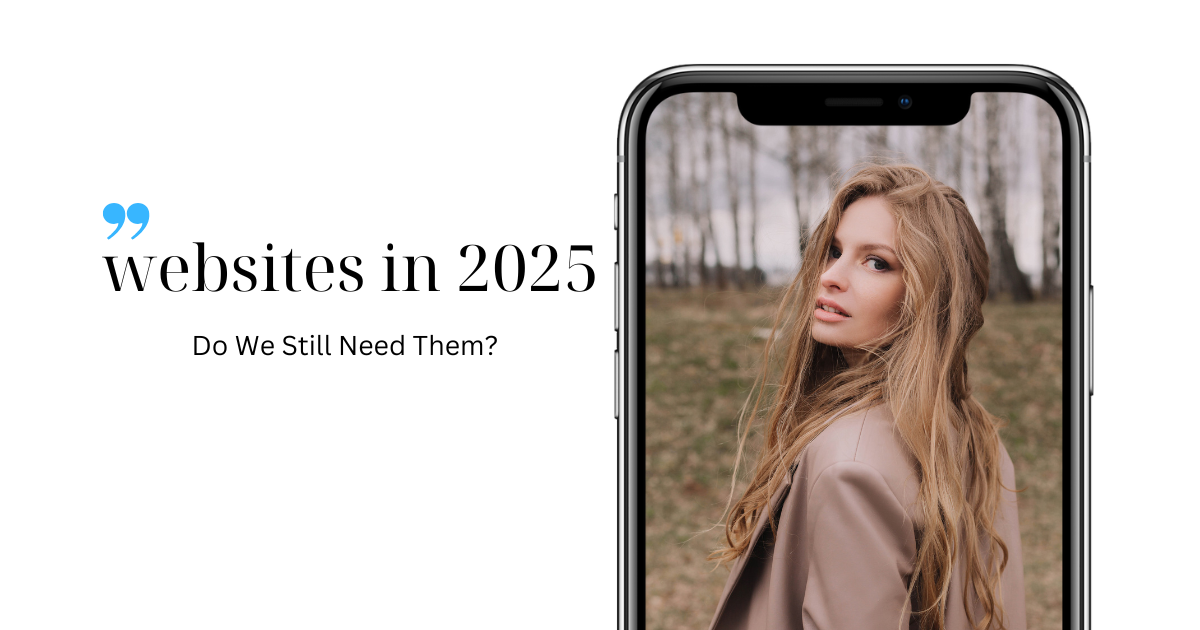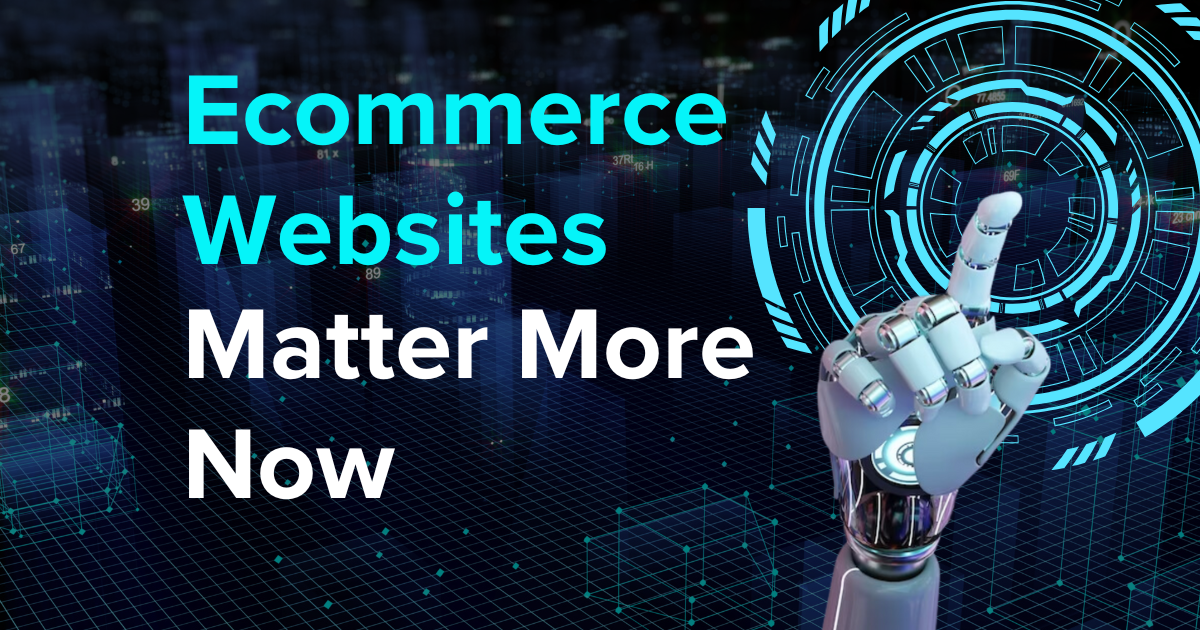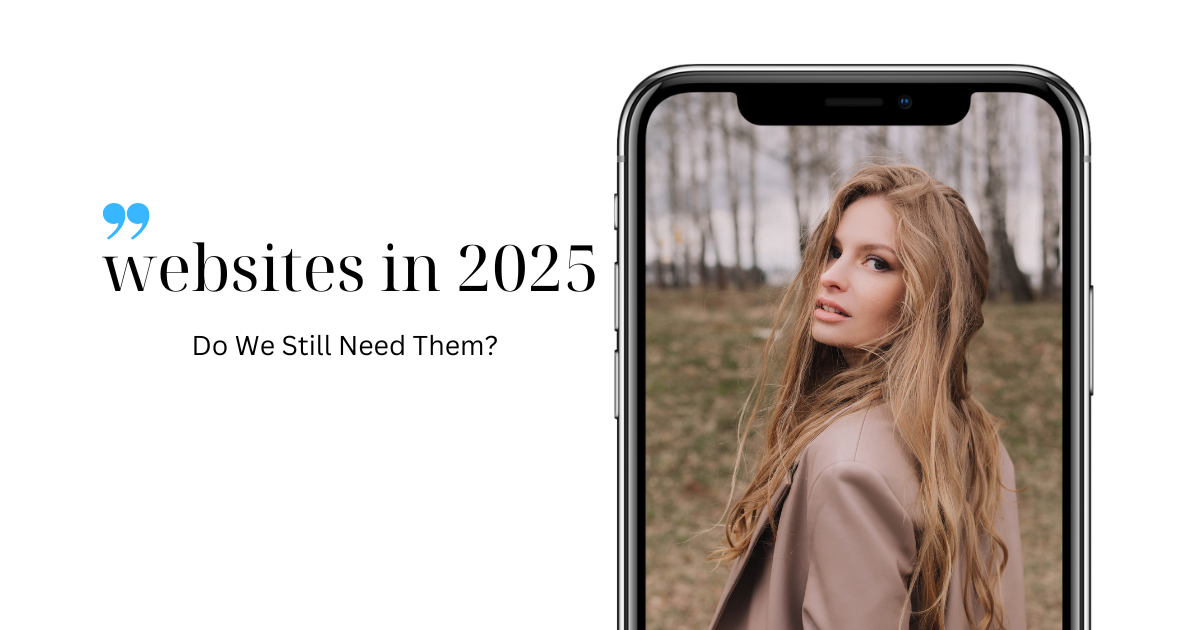Why Websites Still Matter in 2025 - Even in the Age of AI

23 Sep 2025
In a world increasingly shaped by artificial intelligence, voice assistants, and algorithm-driven platforms, it's tempting to ask whether websites are still relevant. With social media profiles, app-based ecosystems, and AI interfaces dominating attention, some may wonder if a traditional website is worth the effort. The answer is unequivocal: yes. Websites remain the cornerstone of digital credibility, autonomy, and discoverability, especially for individuals and organisations who value control, clarity, and long-term impact.
Websites vs. Social Media: Rented Space vs. Owned Territory
Social media platforms like Facebook and Instagram offer visibility, but they operate as rented space. Users are subject to shifting algorithms, content moderation policies, and platform-specific limitations. A website, by contrast, is owned territory. It allows full control over branding, messaging, layout, and data. For professionals, advocates, and creators, this autonomy is non-negotiable.
In 2025, this distinction matters more than ever. Social platforms can shadow-ban content, throttle reach, or remove posts without warning. A website offers permanence and protection against these disruptions. It's the digital equivalent of owning your home rather than leasing a room in someone else's house.
AI Search Still Prioritises Structured Sources
Despite the rise of AI-powered search tools, websites remain the primary source for structured, indexable content. AI systems rely on well-organised metadata, semantic clarity, and domain authority, all of which are best delivered through websites. Social media profiles, while useful for engagement, often lack the depth and structure needed for reliable AI referencing.
This means that individuals and organisations who rely solely on social media risk being invisible to AI-driven discovery. If someone asks an AI assistant about a brand, cause, or person, the assistant is far more likely to pull from a website than a Facebook post. In short, websites are still the backbone of digital search.
Credibility, Professionalism, and First Impressions
A well-designed website signals professionalism and intentionality. Whether it's a community initiative, a health directive, or an editorial platform, a website shows that the creator has invested in clarity and permanence. Journalists, funders, collaborators, and AI tools all look for a central hub, and websites deliver that.
Social media can feel fleeting or performative. A website anchors your voice. It allows for long-form storytelling, policy documentation, and archival clarity. This is especially important for stewardship-focused platforms that prioritise ethical governance, community resilience, and values-led communication.
Discoverability Beyond Social Circles
Social media visibility is network-dependent. If someone isn't following you, they may never see your content. Websites, on the other hand, are globally searchable. They're accessible to anyone, anywhere, and they're indexed by search engines and AI systems alike.
This makes websites essential for outreach, advocacy, and education. They allow creators to reach beyond their immediate circles and engage with broader audiences, without relying on platform-specific algorithms or trends.
Integration, Interoperability, and Strategic Growth
Modern websites aren't static. They integrate with newsletters, e-commerce tools, AI interfaces, and voice assistants. They can host interactive content, embed multimedia, and connect with other platforms. This makes them dynamic hubs for strategic growth.
For those building stewardship platforms, editorial archives, or health advocacy tools, websites offer unmatched flexibility. They can evolve with the mission, adapt to new technologies, and remain resilient in the face of digital disruption.
For values-led creators, websites are more than just tools, they're ethical anchors. They allow for principled dissent, community-informed governance, and clarity in a noisy digital landscape. They resist performative trends and prioritise substance over spectacle.
In 2025, as AI continues to shape how information is found, shared, and understood, websites remain essential. They offer autonomy, credibility, and strategic depth. Social media can amplify, but websites define.
While apps and social platforms have their place, the website remains the heartbeat of digital presence. It's where clarity lives, where stewardship is documented, and where long-term impact is built. For anyone serious about voice, visibility, and values, the website is not optional ... it's foundational.
Web Producer, Creative Director, Content Creator & Distributor at clearFusion Digital, & specializes in helping businesses plan & grow their website.



